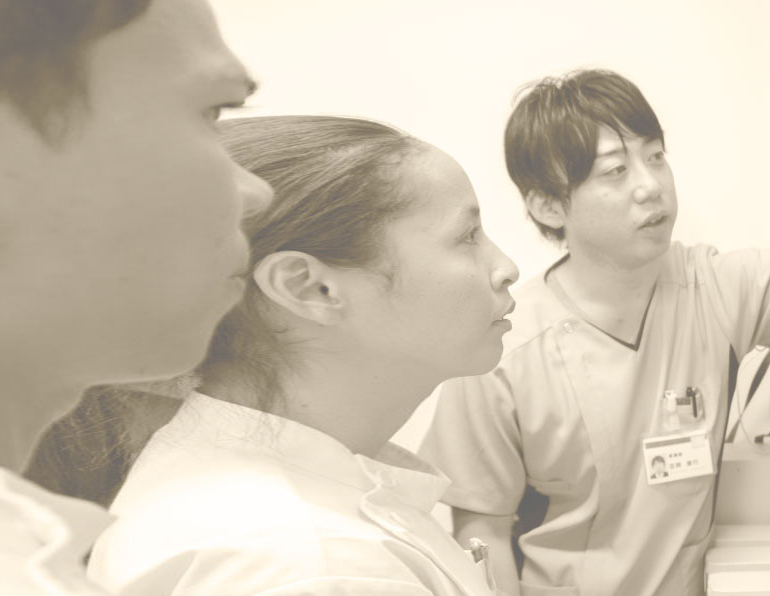
Founded in 2016, the Sunrise Japan Hospital ( SJH) has been rendering world-class medical service to the people of Cambodia. Together with well experienced local staff, we can continue to deliver Japanese quality healthcare in the country.
In pursuit of providing good hospital experience to our client, our priority is to provide high-quality care by recognizing and understanding the patient and patient families’ needs.
At SJH, our team will take care of you like a family “ a Doctor in Your Family”. We aspire to promote regional medical cooperation that will benefit the nation and continue to strive to be recognized as “The Most Reliable Hospital in the World”.
Clinical Director Okawada Manabu
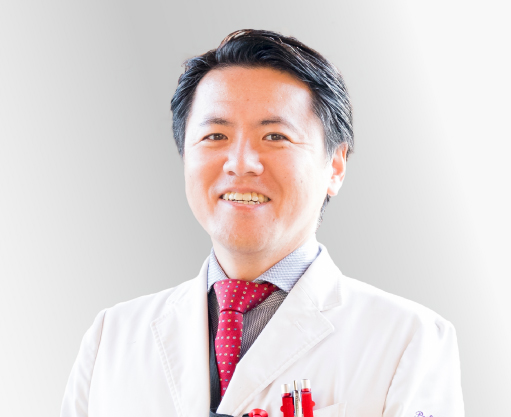
Sunrise Japan Hospital was opened with the earnest wish to contribute to the healthy life of all people living in Cambodia by providing a place where advanced medical services can be received at any time in Cambodia, and by promoting the development of the medical infrastructure in the country. Along with the resident Japanese doctors and medical staff, the Khmer staff themselves to the pursuit of ideal medical treatment, and they are with a sense of responsibility and pride as professionals working at the forefront of medical care. We will keep growing as a member of the community and contribute by continuing to provide the medical services required here.
Representative Director Matsushita Hironori
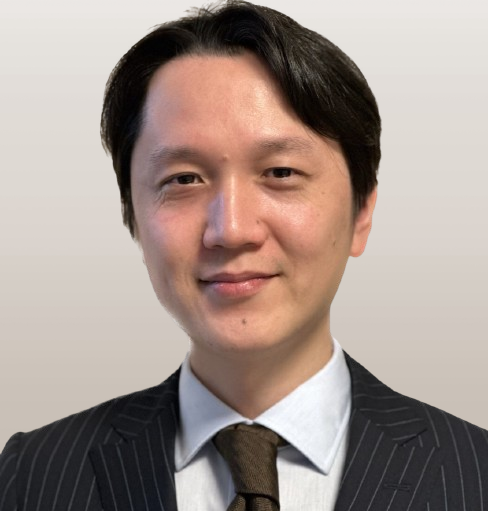
We establish and operate an emergency medical center to provide high-level Japanese style medical services in neurosurgery and other fields while expanding sustainable businesses; 1. Development of human resources, 2. Town revitalization and country revitalization, and 3. Japanese
1. Development of human resources: On-the-Job Training, Kitahara style certification, We establish educational institutions to raise the healthcare standards of Cambodia and to train providers who are needed in ASEAN countries.
2. Town revitalization and country revitalization: With a tool called ”Medical”, we create a regional industry model that promotes the resolution of social issues to contribute to the economic development of Cambodia and other developing nations.
3. Japanese : We showroom Japanese technologies, industries, and culture to the package-export healthcare industry and other healthcare-related industries.
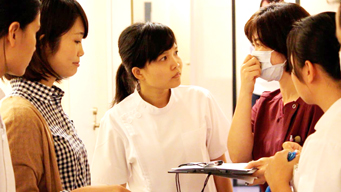
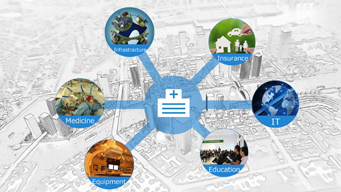
Sunrise Japan Hospital operated by Sunrise Healthcare Service has been established under the cooperation of three Japanese companies to establish and operate a Cambodian emergency medical center.
① JGC CORPORATION (JGC) was established in 1928. It is one of the top energy and Medical-related companies in Japan. As a major investor of the Sunrise Healthcare Service, JGC is going to manage and operate the new hospital.
②INCJ, Ltd. (INCJ) is a both publicly and privately invested investment fund, which was established under the Industrial Competitiveness Enhancement Act. INCJ provides investment support to the Sunrise Healthcare Service and supports the new hospital operation.
③Kitahara Medical Strategies International Co., Ltd. A group company which has top-class stroke treatment results in Japan. KMSI is responsible for the healthcare-related business of the new hospital. In addition to the training of Cambodian staff in Japan, a total of 30 Japanese staff will be sent to Cambodia to provide high-performance and high-quality medical services and to train local staff.
Sunrise Japan Hospital was opened in 2016. A system capable of providing high-standard medical services will be established through operations led by a team of Japanese doctors, nurses, and relating medical professionals while providing training and working with well-experienced Cambodian medical staff members.
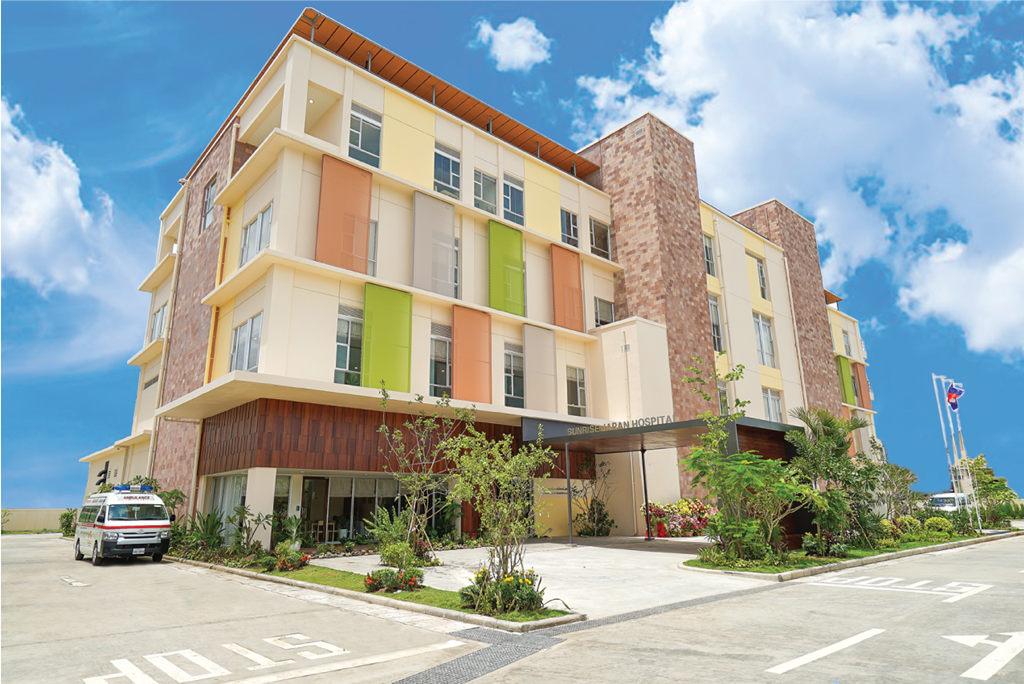
| Hospital Name | Sunrise Japan Hospital Phnom Penh |
| Place | #177E, Kola Loum Street, Phum 2, Sangkat Chroy Changvar, Khan Chroy Changvar, Phnom Penh, Cambodia |
| Contact |
Information/Reservation: 023-260-152 / 078-260-152 Email: info@sunrise-hs.com Web: http://www.sunrise-hs.com Facebook: https://www.facebook.com/sunrise.jhpp/ Telegram Channel: https://t.me/SunriseJapanHospital |
| Amount of Beds | 50 Beds |
| Departments |
15 Departments Emergency/ Trauma/ Infectons/ General Internal Medicine /General Surgery / Gastrointinal Medicine/ Cardiology/ Remote Consultation/ Neurosurgery/ Neuroendovascualar / Neurology/ Rehabilitation/ Health Checkup / Pediatric / Obstetrics and Gynecology |
|
2009.Apr |
The investigation by the Economic Research Institute for ASEAN and East Asia (ERIA) |
|
2011.Apr |
The investigation by the Japanese Ministry of Economy, Trade, and Industry (METI) |
|
2013.May |
Audience with King Norodom Sihamoni, King of Cambodia |
|
2013.Nov |
Opened a public seminar about "Stroke" with Prime Minister Shinzo Abe’s attendance |
|
2014.Apr |
Registration of Sunrise Healthcare Service Co., Ltd at the Ministry of Commerce |
|
2014.Sep |
Sunrise Japan Hospital Groundbreaking ceremony |
|
2014.Oct |
Staff training in Cambodia |
|
2015.Jun |
Conclusion of the loan agreement with JICA |
|
2015.May |
JICA training: Education in a Japanese hospital |
|
2016.Aug |
Hospital license acquisition from the Ministry of Health of Cambodia |
|
2016.Sep |
Opening ceremony with Prime Minister Hun Sen’s attendance |
|
2016.Oct |
Full opening of the hospital |
|
2018.Jan |
Started Pediatric Department (Outpatient/Inpatient/Surgery) |
|
2018.Jul |
Started Breast-Feeding Consultation Started Psychological Counseling |
|
2020.Sep |
Started Obstetrics and Gynecology department (Outpatient/Inpatient/Surgery) |
|
2024.Apr |
Started Cardiology department (Outpatient/Inpatient/Surgery) |
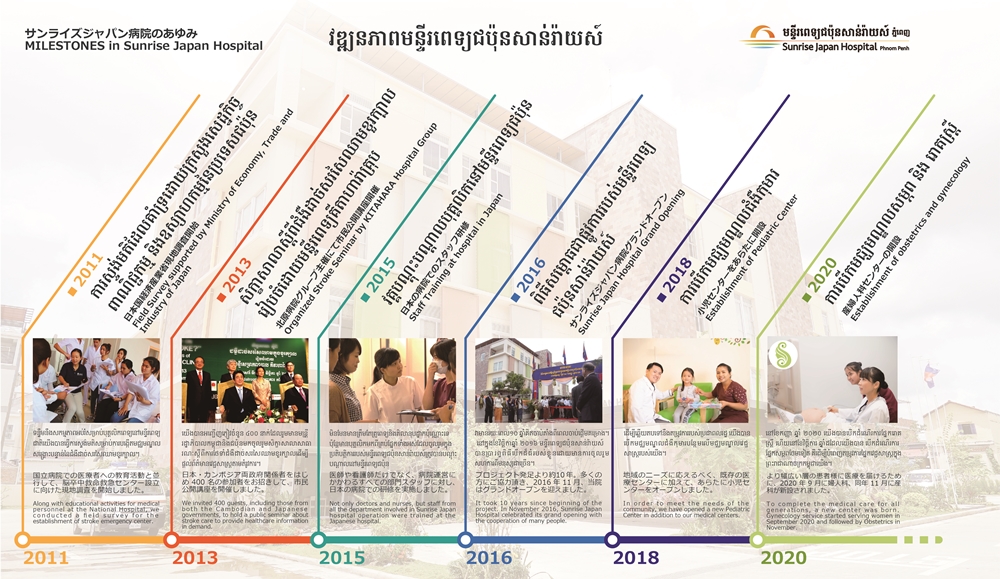
the hospital You can choose the plan of your wishes. We will hold periodic seminars for health promotion, and send health magazines. We also provide coupons for health checkups for silver and gold members.
| Bronze | Silver | Gold | ||
| Health Check-up Package | Basic |  |
||
| Advance |  |
|||
| Discount※1 | 10% OFF |  |
||
| 20% OFF |  |
|||
| Health Seminar |  |
 |
 |
|
| Registration Fee | 10 $ | |||
| Annual Fee※2 | 10 $ | 120 $ | 320 $ | |
※1 Service discount applies only for doctor consultation and hospitalization bed Fee.
※2 Annual Fee is subject to change without prior notice.
[Contact by phone]
023-260-151 / 023-260-152
078-260-151 / 078-260-152
[Contact by email]
Please contact us in this form
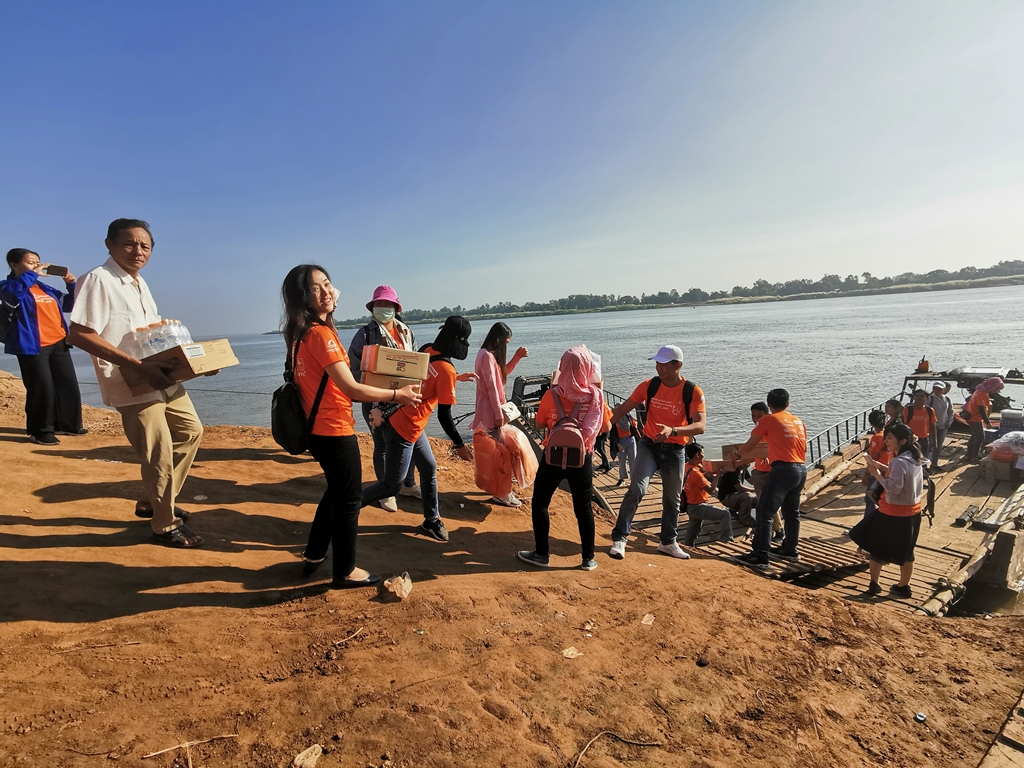
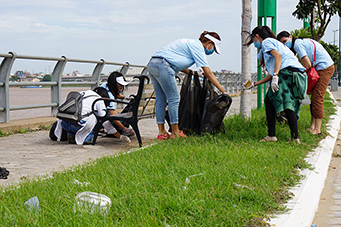
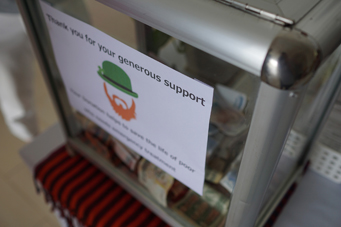
In Cambodia, the proportions of the people below the “absolute poverty line”, which indicates the requirements necessary to afford minimal standards of life, are estimated to be 17% in rural areas, 13% in urban areas (except for Phnom Penh), and 3% in Phnom Penh (in 2004). Since private insurances in Cambodia does not always meet their needs, some have to pay their entire medical costs out of their pocket and many cannot receive adequate medical care. This is why we run the “AKAHIGE” project to provide medical care to all the people. The word “AKAHIGE” is from the Kurosawa movie, “Akahige”, which describes the love and of life through the communication between a doctor and his patients.

For the people who cannot receive adequate medical care or education, we are continuously visiting local cities and doing seminars to provide healthcare education and to supply goods. In addition, the person who recognized that there is no ability to pay will be taken to the hospital. The medical care which can be done only by us will make the auxiliary of the treatment costs. We are going to create a new scheme where people can operate a hospital, train their staff, and build a local system on their own without support so they can get away from the current situations; ”medicine that involves only charity” and ”adequate medical care is only for the wealthy population”.
When conducting clinical research, we get written or verbal explanations and consent.
Among the clinical studies, studies that use only information such as medical care information without invasion or intervention to patients, or studies that use only surplus specimens should be conducted as Guidelines (“Ethical guidelines for medical research targeting humans”).
Based on this, we do not directly obtain the consent of all the target individuals, but disclose the research information and guarantee the opportunity of refusal.
This is called "opt-out".
The clinical studies that opt out are as follows.
If you do not wish to cooperate with the research, please contact the person in charge of each research described in the following document
![]() Health disparity of NCDs among residents in a rural area, Cambodia; a descriptive study.
Health disparity of NCDs among residents in a rural area, Cambodia; a descriptive study.
![]() Regional health disparity among patients at a single facility in the capital city, Cambodia.
Regional health disparity among patients at a single facility in the capital city, Cambodia.
![]() Journal of Epidemiology and Global Health
Journal of Epidemiology and Global Health
![]() International Journal of Health Policy and Management
International Journal of Health Policy and Management
![]() International Journal of Environmental Research and Public Health
International Journal of Environmental Research and Public Health
|
Result of Research |
|
|
Title of Manuscript: |
Regional disparities in health services is a crucial problem in Cambodia |
|
Author: |
Yurie Kobashi, Hong Chhay, Thyryfong Savat, Manabu Okawada, Masaharu Tsubokura, and Yoshifumi Hayashi |
|
Result: |
One hundred sixteen (55.8%) females were included in the total sample size of 208 participants; the majority (52.9%) were between 35 and 65 years of age. Twenty-five participants (12%) were current smokers, and 44 (21%) were current alcohol drinkers. |
|
Publication medium: |
|
|
Publication date: |
Oct/01/2020 |
|
Result of Research |
|
|
Title of Manuscript: |
Regional Differences in Admission Rates of Emergency Patients Who Visited a Private General Hospital in the Capital City of Cambodia: A Three-Year Observational Study |
|
Author: |
Yurie Kobashi, Sophathya Cheam, Yoshifumi Hayashi, Masaharu Tsubokura, Veyleang Ly, Chanakara Noun, Takehiro Kouzuma, Buntongyi Nit, Manabu Okawada |
|
Result: |
A total of 6167 patients who visited the emergency department at SJH between January 2017 and September 2019 were included in the analysis. The proportion of patients who needed to be hospitalized or transferred increased with the distance from the capital. The proportion of patients who finished consultation decreased with the distance from the capital (P < .01: Chi- square test). The results of the logistic regression analysis showed that the admission rate in rural areas was significantly higher only among males as compared to that of the capital in multivariate analyses adjusted for age, time, and season. |
|
Publication medium: |
International Journal of Health Policy and Management |
|
Publication date: |
May/19/2021 |
|
Result of Research |
|
|
Title of Manuscript: |
Prevalence of Metabolic Syndrome and Its Components in Urban Cambodia: A Cross‑Sectional Study |
|
Author: |
Miharu Tamaoki, Ikumi Honda, Keisuke Nakanishi, Sophathya Cheam, Manabu Okawada, Hisataka Sakakibara |
|
Result: |
Among the 6090 (3174 men and 2916 women) participants who were enrolled in the study, the prevalence of MetS was 60.1% in men and 52.4% in women. The prevalence of elevated blood pressure was 73.2% in men and 65.3% in women, and was the highest MetS component in both men and women. In contrast, the lowest prevalence rates were observed for |
|
Publication medium: |
Journal of Epidemiology and Global Health |
|
Publication date: |
Aug/10/2022 |
|
Result of Research |
|
|
Title of Manuscript: |
Regional Differences in Admission Rates of Emergency Patients Who Visited a Private General Hospital in the Capital City of Cambodia: A Three-Year Observational Study |
|
Author: |
Yurie Kobashi1, Sophathya Cheam, Yoshifumi Hayashi, Masaharu Tsubokura, Veyleang Ly, Chanmakara Noun, Takehiro Kozuma, Buntongyi Nit, Manabu Okawada |
|
Result: |
A total of 6167 patients who visited the emergency department at SJH between January 2017 and September 2019 were included in the analysis. The proportion of patients who needed to be hospitalized or transferred increased with the distance from the capital. The proportion of patients who finished consultation decreased with the distance from the capital (P < .01: Chi-square test). The results of the logistic regression analysis showed that the admission rate in rural areas was significantly higher only among males as compared to that of the capital in multivariate analyses adjusted for age, time, and season. |
|
Publication medium: |
|
|
Publication date: |
May/19/2021 |
|
Result of Research |
|
|
Title of Manuscript: |
Difference of sociodemographic characteristics among the disabled population in Cambodia: a cross-sectional study of the demographic and health survey data |
|
Author: |
Kanika Kep, Yurie Kobashi, Erica Jynn Abarca Lopez, Masaharu Tsubokura, Manabu Okawada |
|
Result: |
The results showed that the proportion of people with disabilities greatly increased with age. The rural-urban residence difference affected the disability proportion in univariate analysis; however, the effect was not significant after adjusting for covariables in multivariate analysis. The odds of having a disability were 0.85 times lower for the high economic status group than for the low economic status group. |
|
Publication medium: |
Journal of Rural Medicine |
|
Publication date: |
May/17/2022 |
|
Result of Research |
|
|
Title of Manuscript: |
Vulnerable groups and protective habits associated with the number of symptoms caused by pesticide application in Kratie, Cambodia: a cross-sectional questionnaire study |
|
Author: |
Yurie Kobashi, Lihorn Srou, Masaharu Tsubokura, Yoshitaka Nishikawa, Ngy Laymithuna, Songhy Hok, Manabu Okawada |
|
Result: |
The observed number of symptoms was 1.16 times higher among women (P=0.004), increased with the duration of work, and decreased with age. In addition, we identified five significant pesticide-protective behaviors: 1) preparing using gloves, 2) using protective equipment, 3) avoiding wiping sweat, 4) avoiding leaking, and 5) resting when feeling ill. Pesticide-protective behaviors tended to decrease with the duration of working years in the low-education group (B=−0.04, SE=0.01), whereas no association was observed in the high-education group (B=0.01, SE=0.01). |
|
Publication medium: |
Journal of Rural Medicine |
|
Publication date: |
Sep/17/2022 |
|
Result of Research |
|
|
Title of Manuscript: |
Lifestyle Factors Associated with Metabolic Syndrome in Urban Cambodia |
|
Author: |
Miharu Tamaoki, Ikumi Honda 1, Keisuke Nakanishi, Maki Nakajima, Sophathya Cheam, Manabu Okawada, Hisataka Sakakibara |
|
Result: |
Our results indicated that lifestyles significantly associated with MetS among Cambodians living in urban areas of Cambodia were eating quicker than others, walking faster than those of the same sex of similar age and drinking alcohol in both men and women. In addition, there were significant associations with normal eating speed for men only and, for women only, skipping breakfast at least three days per week, eating food after dinner at least three days per week and getting enough rest through sleep. Further studies are needed to examine lifestyle factors to derive more suitable content for Cambodians’ living environment, which may lead to efforts for the prevention of MetS tailored to the characteristics of Cambodians. |
|
Publication medium: |
International Journal of Environmental Research and Public Health |
|
Publication date: |
Aug/13/2022 |
|
Result of Research |
|
|
Title of Manuscript: |
Lessons from COVID-19’s impact on medical tourism in Cambodia |
|
Author: |
Makoto Kosaka, Yurie Kobashi, Kensuke Kato, Manabu Okawada Masaharu Tsubokura |
|
Result: |
In this COVID-19 era, many patients are affected due to the loss of medical tourism. In Cambodia, where the obvious problem of providing medical care to people in own country as part of lifeline has not yet been solved, medical tourism has become a tentative solution that has prevented fundamental solutions to the problem. The COVID-19 pandemic has forced Cambodia to confront this problem by making medical tourism unfeasible. This experience revealed the need to encourage patients who were unable to undertake medical tourism to visit domestic medical facilities, make efforts to share patient information across countries, and to invest in developing each department in domestic hospitals. Support for patients who are unable to undertake medical tourism is urgently needed. Furthermore, medical tourism for profitmaking purposes might have a negative impact on sustainable healthcare, which needs to be reconsidered. |
|
Publication medium: |
Public Health in Practice |
|
Publication date: |
Nov/02/2021 |
|
Result of Research |
|
|
Title of Manuscript: |
Discrepancy of financial burden among elderly visiting a private general hospital in Phnom Penh, Cambodia: A three-year cross-sectional study |
|
Author: |
Yurie Kobashi, Khemvitou Sok, Yoshifumi Hayashi, Hong Chhay, Masaharu Tsubokura, Kimhab Chou, Nobukazu Hokamura, Akihiko Ozaki, Yoshitaka Nishikawa, Manabu Okawada |
|
Result: |
The demographic characteristics of the participants are shown in Table 1. A total of 119,938 patients who visited SJH from January 2017 to September 2019 were included Of these, 48.12% were male, and the median age (25th, 75th centiles) was 52 years (36, 66). The most substantial proportion in consultation classification was “Revisit” (37.84%), and that in the next plan classification was “Consultation finish” (37.69%). Approximately 90% spoke the Khmer (Cambodian) language; this proportion was similar to the fact that approximately 90% of Cambodian residents and approximately 10% of foreigners comprise the total population. Only 2% of the patients used insurance, and the OOPP median (25th, 75th centiles] was 73.78 USD. |
|
Publication medium: |
Public Health in Practice |
|
Publication date: |
Dec/04/2022 |